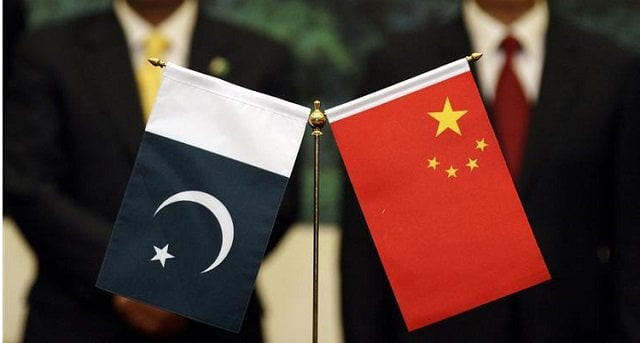Leaked documents reveal Pakistan’s assessment on US-China tussle
State Minister Khar argues preserving US partnership hurts 'real strategic' China ties, urges prioritising Beijing

Highly classified findings of the US intelligence community have revealed the internal assessment of Pakistan’s policymakers on how to tackle the challenge of growing tussle between the US and China.
The documents, among a trove of US secrets leaked online through the Discord messaging platform, provided a rare glimpse into the private calculations by key emerging powers, including India, Brazil, Pakistan and Egypt, as they attempt to straddle allegiances in an era when America is no longer the world’s unchallenged superpower, reports The Washington Post on Sunday.
What was significant of those leaked documents was that the US had been able to gain access to the top secret memo written by Minister of State for Foreign Affairs Hina Rabbani Khar.
Khar, as per leaked documents, suggested that Pakistan must stop maintaining a "middle ground" between China and the US.
According to The Washington Post, Khar argued in March that her country can “no longer try to maintain a middle ground between China and the United States.”
In an internal memo she titled “Pakistan’s Difficult Choices,” Khar, who previously served as Pakistan’s foreign minister, cautioned that Islamabad should avoid giving the appearance of appeasing the West, and said the instinct to preserve Pakistan’s partnership with the United States would ultimately sacrifice the full benefits of what she deemed the country’s “real strategic” partnership with China.
The undated intelligence document does not detail how the United States gained access to Khar’s memo.
Read more: US arrests 21-year-old National Guardsman for online intelligence leaks
Though there was no official reaction from Pakistan, sources told The Express Tribune that Khar gave her assessment against the backdrop of in-house consultations on whether Pakistan should attend the US democracy summit in March.
President Biden invited leaders of over 100 countries including Prime Minister Shehbaz Sharif to the second democracy summit. Islamabad skipped the first summit in 2021 when Imran Khan was the prime minister.
After the change of government, there were speculations that Pakistan might attend the democracy summit. But like 2021, Pakistan stayed away from the event because of China. Beijing objected to the Biden's initiative as US invited Taiwan.
Sources said Khar had given her input on the issue. Pakistan didn't attend the summit but did try to maintain a delicate balance. Despite Khar's view, it is not clear if Pakistan is willing to publicly take a stance that shows it has joined the China camp.
This was reflected in a recent address by Chief of Army Staff (COAS) General Syed Asim Munir, who said it was Pakistan’s policy not become part of big powers rivalry. General Munir undertook a visit to China last week.
This indicated that Pakistan publicly would continue to maintain that it is against bloc politics.
Meanwhile, another document, dated Feb. 17, describes Prime Minister Shehbaz Sharif’s deliberations with a subordinate about an upcoming UN vote on the Ukraine conflict, and what the government anticipated would be renewed Western pressure to back a resolution condemning Russia’s invasion.
The aide advised Sharif that support for the measure would signal a shift in Pakistan’s position following its earlier abstention on a similar resolution, the intelligence document says. Pakistan had the ability to negotiate trade and energy deals with Russia, and backing the Western-backed resolution could jeopardise those ties, the aide noted
When the UN General Assembly voted Feb. 23, Pakistan was among 32 countries that abstained.



















COMMENTS
Comments are moderated and generally will be posted if they are on-topic and not abusive.
For more information, please see our Comments FAQ